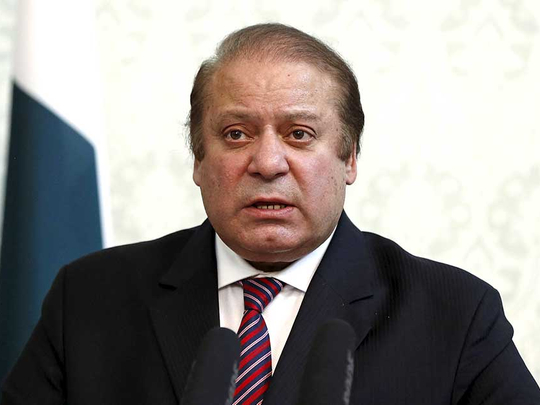
As the spotlight fell once again on global terrorism in the aftermath of Thursday’s gruesome terror attack in the French city of Nice, Pakistan’s ruling structure was yet again busy grappling with its own challenges.
Just a day ahead of July 15, when a two-year-old anti-terror law was set to lapse, Prime Minister Nawaz Sharif’s ruling structure was jolted into last-minute action — yet again. The regime sought the cooperation of its political opponents to back an extension of the law, known as the Protection of Pakistan Act (PoPA).
This law has formed the basis of instruments, such as the creation of anti-terrorist courts that have been used to prosecute suspects involved in widely publicised cases of terrorism. It was probably just a coincidence that General Raheel Sharif, Pakistan’s Army Chief — who is widely known to have led the fight against Taliban militants — just a day before Friday’s deadline had cleared the death warrants of the latest batch of prisoners tried by anti-terror courts and sentenced to death.
Pakistan has suffered much in the previous decades as it has borne the brunt of hardened terrorists seeking to claim space across the country. In recent years, however, the advancing tide of militancy has begun to be blocked in an army-led campaign against terrorism. Yet, fighting terrorism will remain a recurring feature of Pakistan unless the drive is backed by other decisive actions. The scramble by Sharif’s government to renew the legal cover for anti-terror courts indeed reflects just too poorly on Pakistan’s ruling structure. The episode clearly suggests that the country’s elected politicians have failed to remain in step with the army and security services in taking away space from hardened militants.
The legal cover to extend the tenure of the anti-terror courts will just mark one element in keeping up pressure on hardline militants. For the long term, Pakistan needs to take steps in at least three other areas to consolidate the gains and bring lasting peace.
First, an effective system of border controls is essential to not only raise the guard against a possible flow of incoming terrorists from next-door Afghanistan — a country turned into rubble, following more than three decades of war. Additionally, people of other nationalities over the years have conveniently arrived in Pakistan, including those suspected of being involved in criminality. A countrywide campaign has become long overdue to track down all such individuals who are staying in Pakistan without any legitimate reason and subsequently there is need to process cases of deportation against such illegal residents.
Second, a large part of the facilitation of militant activities clearly flows from the gaps in the overall financial environment. Pakistan has a widespread problem of being saddled with a huge black economy, which effectively means that about 99 per cent of its population remains outside the nexus of income-tax payers. This is clearly an untenable position for a number of reasons. Its clear that without an aggressive effort to clean up the tax-collection system, such gaps will continue to be exploited by players ranging from criminals of all descriptions to simple tax dodgers. Though successive Pakistani governments have failed to move ahead decisively in addressing this vital issue, the country now faces the need for decisive action. For Sharif’s government, a failure to act in closing the loopholes in the financial environment will essentially mean that advances made against hard-core militants could easily be reversed in the years ahead.
And last but not the least, the fight against militancy can just not be won without a series of actions to popularise this cause. While Sharif and some of his colleagues have frequently claimed to be committed to the cause of fighting militancy, there is little convincing evidence to suggest that the entire political structure has risen to back this cause. Across the federal and provincial parliaments, there is little evidence of a decisive push to join and win the battle against militancy. There is need for a comprehensive debate on and decisive action to reform the police. But there is little evidence of this being pursued vigorously.
Given that the proof of the pudding is in the eating, the gaps in policy-making and the lack of translation of progressive policies into action speak for themselves. Across Pakistan, the widespread poverty presents a threat to stability, as it continues to be a neglected subject. Without an aggressive push to carry forward a series of economic reforms aimed at eliminating poverty, ending the scourge of militancy will remain an uphill battle.
Taking decisive actions on the economic front will indeed require attacking the interests of the elite, notably those well embedded in the ruling structure. For Sharif, the question eventually is just one. Is he prepared to become the leader of a decisive push for change or is he simply happy to preside over the status quo?
The widely noticed last-minute rush in the past week to extend the law in support of battling militancy could eventually turn out to be just a flash in the pan. Addressing the immediate challenge of ensuring a continued functioning of anti-terror courts is paramount and the writing on the wall is all too visible — that Pakistan’s elected politicians may have promised to back the ongoing push against hardcore militancy, but their ability to turn the push into a permanent success story remains in doubt.
Farhan Bokhari is a Pakistan-based commentator who writes on political and economic matters.










